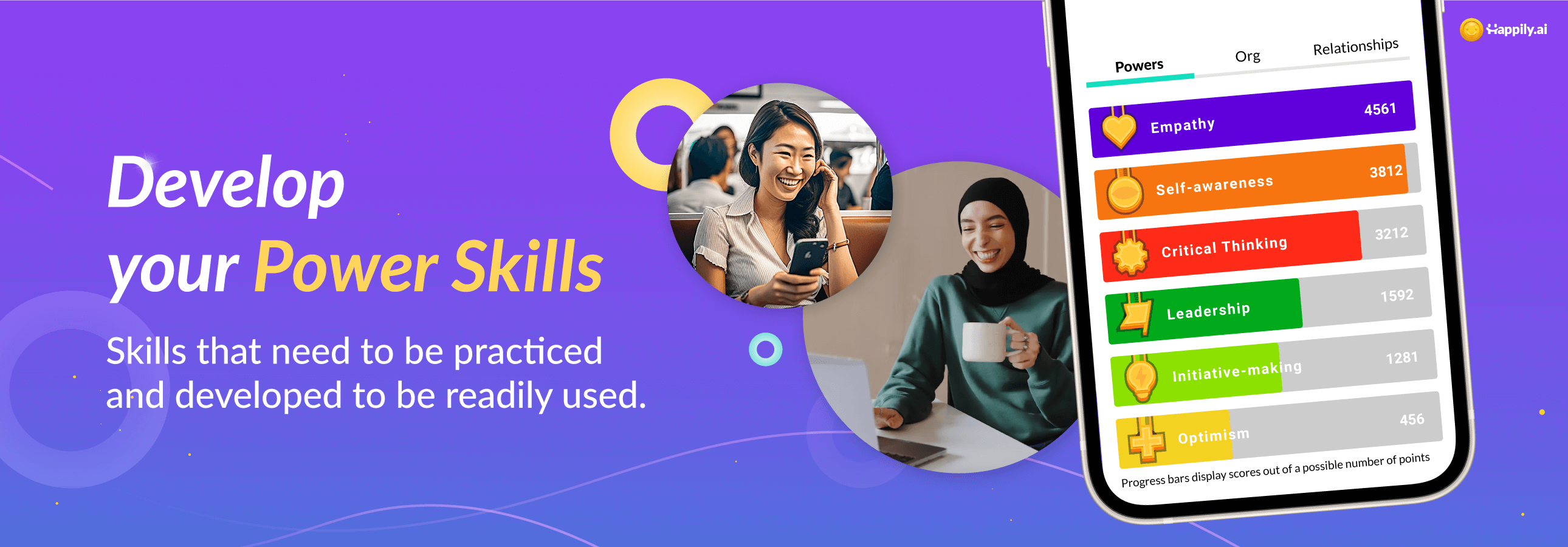As remote and hybrid workplaces become the norm, employees are more likely to feel isolated and disconnected. The lack of human connection not only affects employee well-being but interferes with a critical mechanism for ideation, productivity, continuous improvement, and problem-solving: feedback. The State of Employee Feedback reports that 41% of employees have left their job due to a lack of belief that their employer was listening to them, and the cost to replace these employees can be as much as 1.4 times the base salary range.
However, establishing a feedback culture can help overcome these challenges and strengthen relationships in the workplace. Constructive feedback from team members provides an opportunity for self-reflection and professional growth, leading to improved employee engagement, performance, and retention.
Establishing a feedback culture requires more than just implementing a feedback system. One critical factor in fostering a feedback culture is the human element. Thus, it is crucial that your team is skilled in giving and receiving feedback effectively. Soft skills (or human skills) determine how employees interact and have a critical impact on productivity, performance, well-being, and workplace culture. Our research delves into the connection between specific soft skills and peer feedback to understand how to create and sustain a feedback culture.
A total of 2,288 employees across 43 companies participated in our study. We measure how often they are asked to give peer feedback. By collecting the number of giving feedback over a 4-to-9-month period, employees were requested feedback from their peers via the Happily Peer Feedback Feature. We also measure the frequency and effort in practicing six soft skills (Empathy, Leadership, Self-awareness, Optimism, Initiative-making, and Critical Thinking) as part of daily feedback. The more effort put into practice and exercise the skill, the sharper and more developed the skill becomes.
When comparing employees who never practice soft skills (the bottom quartile) with those who most regularly practice (the top quartile), we found that empathy and self-awareness significantly predict requested peer feedback.
The result shows that employees who most regularly practice empathy are 4.8x more requested to give peer feedback than those who never practice empathy. Employees with a high empathy have a better understanding of (and care for) their peer’s issues and feelings. Therefore, they can deliver constructive criticism in a less damaging manner. As accepting critical feedback requires vulnerabilities, employees feel more comfortable asking their highly empathetic team members for feedback.
In addition, we found that employees who most regularly practice self-awareness are 3.4x more requested to give peer feedback than those who never practice self-awareness. Self-awareness enables employees to gain a deeper understanding of their values, needs, strengths, and weaknesses. This insight helps them effectively address the causes of conflicts or miscommunications. Besides, the heightened sense of self-awareness allows employees to recognize and understand the emotions, motivations, and behavior of others in the team. Hence, they can deliver honest, well-received, and actionable feedback. All in all, employees with high self-awareness can contribute to improved communication and relationships within the team.
Subscribe to our newsletter to be the first to receive our studies of soft (human) skills and to better understand their role in the workplace
Empathy and self-awareness are crucial skills when employees seek constructive and honest feedback. Unfortunately, only a few employees have a higher capacity for empathy. Hence, when empathetic employees share sufferings from their peers too much, they are at a higher risk of burnout. Fostering a feedback culture not only builds relationships and increases employee development but also helps leaders to ensure that peer feedback is not solely relied upon by empaths in your team.
We recommend leaders and managers prioritize the following strategies to develop empathy and self-awareness to foster a feedback culture in the workplace.
4 strategies to develop empathy
- Listening with an open mind
Leaders and managers must be good listeners to foster empathy at work. Be attentive to what your employees are saying and how they are feeling through nonverbal cues such as tone, pace of speech, facial expressions, and gestures. Both regular and one-on-one meetings provide a great opportunity for paying full attention to your employees' feedback.
You do not need to agree with every perspective. However, it is essential to understand their point of view. - Express empathy through action
Without action, empathy may be interpreted as less than authentic. Not only actively listen to employees. Leaders and managers also need to actively respond to their team’s concerns and address them in a way that takes the benefit of the team and organization into account. Empathy is most concretely expressed through action. - Promote diversity and inclusion
A workplace that values diversity and includes people from various backgrounds and experiences can help employees develop empathy by exposing them to different perspectives and experiences. - Involve employees in corporate social responsibility (CSR) initiatives.
Involving employees in charitable causes such as food and clothing donations not only makes a positive impact in the community but provides an opportunity for practicing and applying empathy in a real-world context.
To ensure optimal buy-in, leaders should start from their workplace—where employees can involve and brainstorm—for example, creating a voluntary contribution fund to help fellow employees and their families with unexpected medical costs.
3 strategies to develop self-awareness
- Share self-assessments with your team
Personality assessments, such as the Myers-Briggs Type Indicator (MBTI), can help employees better understand their own personality and how it affects thoughts and behaviors. Another recommendation is the Insight Quiz by Dr.Tasha Eurich. This helps employees better understand their actual state of self-awareness. It also provides useful tools and tips to develop self-awareness. - Regularly give feedback
Feedback is a valuable tool for improving self-awareness. Guide your team down the right path by providing regular feedback; avoid punishment. Also, encourage employees to ask for peer feedback to help them gain insight into how their colleagues perceive their actions. - Encourage employees to reflect on their actions and behaviors
Taking time to reflect on actions and behaviors is crucial for better understanding how they may have affected others in the team. Writing in a journal is a great tool for self-reflection. It allows people to reflect on their thoughts and feelings more structured and deliberately. Journaling can be particularly useful for identifying patterns and areas for improvement.

Conclusion
Feedback culture creates an opportunity for team interaction, employee performance development, and promotes collaboration in the workplace. Asking and accepting feedback are challenging, as it requires vulnerability. Therefore, employees feel comfortable receiving constructive feedback from highly empathetic team members and seek honest and actionable feedback from highly self-aware colleagues. Leaders can foster a feedback culture by developing empathy and self-awareness in their workplace.
How we can help
Happily.ai helps companies develop soft skills in the workplace. We provide opportunities to practice human skills —critical thinking, empathy, self-awareness, optimism, and more —in daily feedback. We also help create a feedback culture and improve workplace relationships. There are no shortcuts, but we help you put the right pieces in place (within days, not months!). Check out how Happily.ai can drive positive change in your workplace. Make soft skills and a feedback culture a top priority today!

Resources:
https://blog.happily.ai/activate-your-talent-with-regular-feedback-and-recognition/
https://blog.happily.ai/2-soft-skills-that-boost-performance/
https://blog.happily.ai/prioritize-soft-skills-to-boost-employee-well-being-and-happiness/
https://blog.happily.ai/mitigate-toxic-behaviors-with-the-power-of-soft-skills/
https://online.hbs.edu/blog/post/emotional-intelligence-in-leadership








